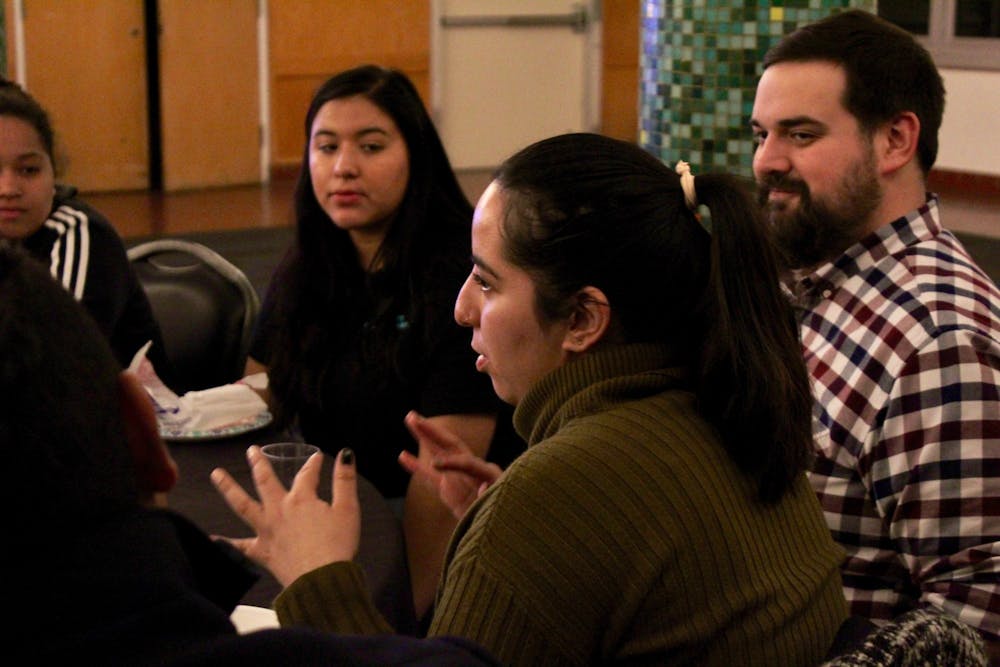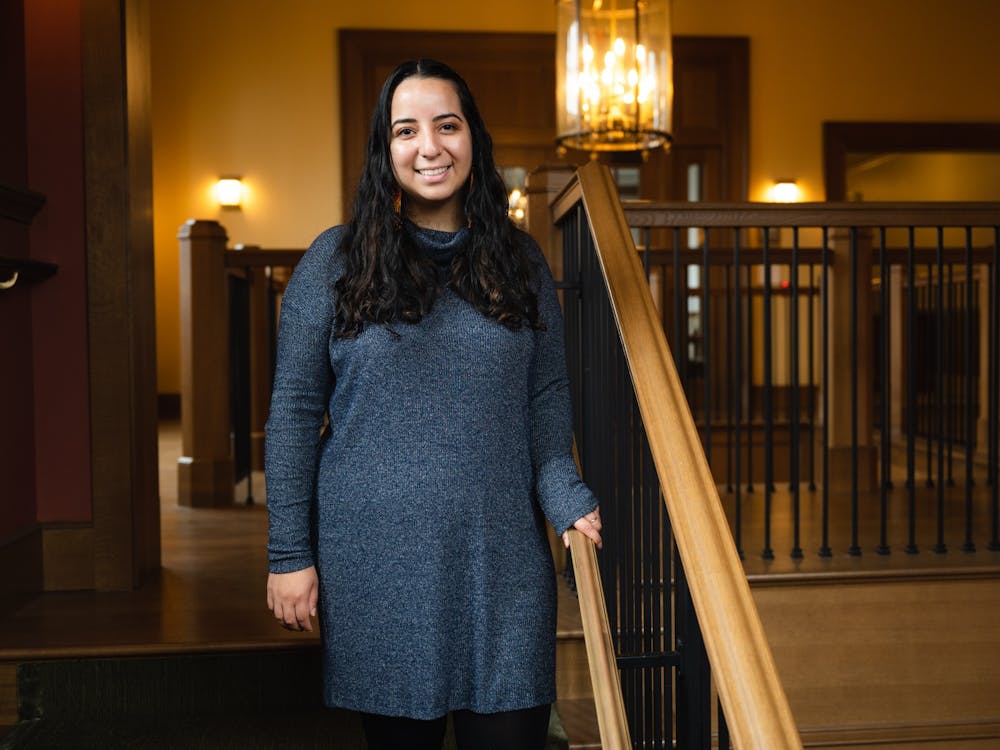Bánh Mì, Vietnamese for bread, has changed from its original form into a sandwich with veggies, sauce and meat. Some American restaurants have gotten rid of the bread, marketing “bánh mì bowls.” This, according to the president of UP’s Vietnamese Student Association (VSA), NganTranh Nguyen, is an example of cultural appropriation.
On Tuesday night, the smell of bánh mì sandwiches filled the Terrace room of The Commons along with students, faculty and staff members eager to discuss cultural appropriation. VSA partnered with Diversity and Inclusion Programs to present the discussion and workshop, as part of Diversity Dialogues. The presenters shared their definitions of cultural appropriation and different examples, and how this is present at UP in different areas like food served on campus.
“I think it comes down to really understanding this notion of respect for one another, and so cultural appropriation comes out of this ‘not knowing,” Yuri Hernández Osorio, coordinator of Diversity and Inclusion Programs said. “So, you fall into the trap of cherry-picking certain things from different cultures and identities and appropriating them because you are unaware of the historical significance, the cultural background.”

Bánh mì, which translates directly to bread, is a Vietnamese sandwich that was served at the event. Bánh mì was highlighted in later discussions of food fusions.
Nguyen and VSU’s event coordinator, Abby Dolor, provided examples of cultural appropriation that affected them including bánh mì, and the traditional Vietnamese dress, áo dài, being sexualized when people wear just the top part of the garment without pants. They also showed photos of celebrities in the media dressed wearing attire from other cultures.
According to Hernández Osorio, buying authentic items from a certain culture directly, like jewelry from a local Native American artist, is a great form of appreciation. When larger companies use patterns from different cultures and then make a profit off that, this is a type of appropriation, according to Hernández Osorio.
For example, Nguyen and Dolor compared the mascots and NFL team names of the Seattle Seahawks and the Washington Redskins. The Seahawks’ logo shows appreciation for the culture of the Kwakwakaʼwakw, a Native American tribe in the Pacific Northwest. According to Nguyen and Dolor, the Redskins appropriate and generalize Native Americans with their mascot who has literally red skin and a feather off the back of his head.
After the presentation, the different tables broke off to dive into a discussion about appropriation. Many discussions led toward the global dishes offered in the Pilot House and The Commons. Members of VSA are appreciative that the Bon App tries to make food from their culture, but they feel like it’s not done right and is appropriated to an extent.

Coordinator for Diversity and Inclusion Programming Yuri Hernández Osorio leads discussion at her table.
“Sometimes they have Vietnamese dishes out there and it can feel like a letdown, because there is an expectation that I have,” Vivian Le, exterior vice president of VSA, said. “They always offer bánh mì, but it’s always spelled wrong. I’ve actually gone up to the lady who creates the menu and told her that the “n” goes before the “h” and they still haven’t changed it … Sometimes it’s a thing of me having to rethink how I react towards it, and being too sensitive and asking too much. It’s really hard to balance.”
There were many discussions at the event, and according to Hernández Osorio, this is a great start for people to become educated about cultural appropriation. She also wants to encourage students to learn more about the topic before going into discussions about it. Hernández Osorio recommends a podcast called “All My Relations,” which has two episodes about cultural appropriation.
“I love referring people to podcasts because it feels like a conversation while you have some extra time,” Hernández Osorio said. “Absorb that knowledge, do some work. I feel like we enter these conversations without any baseline and I think that’s where we do harm. You can get to a deeper point in a conversation with just doing a little research and it goes such a long way.”
Fiona O'Brien is a reporter for The Beacon. She can be reached at obrienf21@up.edu.








